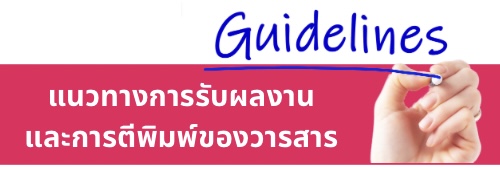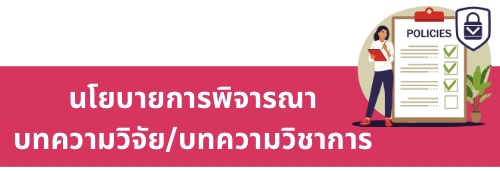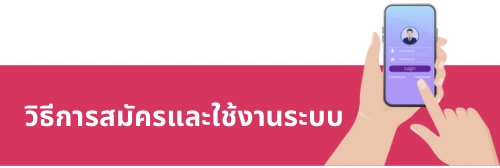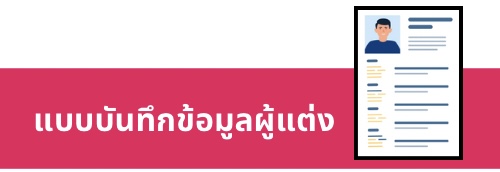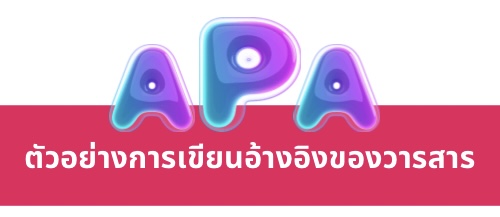การพัฒนารูปแบบการเสริมสร้างความรอบรู้ทางด้านสุขภาพในการใช้กัญชาทางการแพทย์ของอาสาสมัครสาธารณสุขประจำหมู่บ้าน อำเภอปราณบุรี จังหวัดประจวบคีรีขันธ์
คำสำคัญ:
ความรอบรู้ทางด้านสุขภาพ, กัญชาทางการแพทย์, อาสาสมัครสาธารณสุขประจำหมู่บ้าน (อสม.)บทคัดย่อ
การวิจัยครั้งนี้เป็นการวิจัยและพัฒนา มีวัตถุประสงค์เพื่อ 1) ศึกษาความรอบรู้ทางด้านสุขภาพในการใช้กัญชาทางการแพทย์ของอาสาสมัครสาธารณสุขประจำหมู่บ้าน (อสม.) 2) พัฒนารูปแบบการเสริมสร้างความรอบรู้ทางด้านสุขภาพในการใช้กัญชาทางการแพทย์ และ 3) ศึกษาผลของการใช้รูปแบบการเสริมสร้างความรอบรู้ทางด้านสุขภาพในการใช้กัญชาทางการแพทย์ แบ่งการวิจัยเป็น 3 ระยะ ระยะที่ 1 ตัวอย่างเป็น อสม. จำนวน 320 คน ระยะที่ 2 ผู้ให้ข้อมูลเป็น อสม. จำนวน 10 คน และ ระยะที่ 3 ตัวอย่างเป็น อสม. จำนวน 48 คน แบ่งเป็นกลุ่มทดลองและกลุ่มควบคุม อย่างละ 24 คน เครื่องมือที่ใช้ในการวิจัยเป็นแบบสอบถามความรอบรู้ด้านสุขภาพในการใช้กัญชาทางการแพทย์ แบบบันทึกประเด็นการสนทนา และแบบสอบถามความพึงพอใจ วิเคราะห์ข้อมูลเชิงปริมาณด้วยความถี่ ร้อยละ ค่าเฉลี่ย ส่วนเบี่ยงเบนมาตรฐาน และการทดสอบที วิเคราะห์ข้อมูลเชิงคุณภาพด้วยการวิเคราะห์เนื้อหา
ผลการวิจัยพบว่า 1) อสม. มีความรอบรู้ทางด้านสุขภาพในการใช้กัญชาทางการแพทย์ในระดับปานกลาง (M = 53.79, SD = 15.57) 2) รูปแบบการเสริมสร้างความรอบรู้ทางด้านสุขภาพในการใช้กัญชาทางการแพทย์ ประกอบด้วย การมอบหมายผู้รับผิดชอบ การให้ข้อมูลการใช้กัญชาทางการแพทย์ผ่านการบรรยายโดยแพทย์และบุคลากรทางการแพทย์ การติดตามอัปเดตความรู้ผ่านข้อความ สื่อวิดีทัศน์ โปสเตอร์อิเล็กทรอนิกส์ การตอบคำถามผ่านกลุ่มไลน์ และการลงพื้นที่จริงเพื่อให้ความรู้ 3) ผลการใช้รูปแบบพบว่า กลุ่มทดลองมีคะแนนเฉลี่ยความ
รอบรู้ทางด้านสุขภาพในการใช้กัญชาทางการแพทย์มากกว่ากลุ่มควบคุมทั้งในภาพรวมและรายด้าน อย่างมีนัยสำคัญทางสถิติที่ระดับ .05 และกลุ่มทดลองหลังการใช้รูปแบบมีความรอบรู้ทางด้านสุขภาพในการใช้กัญชาทางการแพทย์สูงกว่าก่อนใช้รูปแบบ อย่างมีนัยสำคัญทางสถิติที่ระดับ .05 กลุ่มทดลองมีความรอบรู้ทางด้านสุขภาพในการใช้กัญชาทางการแพทย์เพิ่มขึ้นอย่างมีนัยสำคัญทางสถิติ เพิ่มสูงขึ้นจากระดับปานกลาง และกลุ่มทดลองมีค่าเฉลี่ยความพึงพอใจในการใช้รูปแบบอยู่ในระดับมากที่สุด (M = 4.65, SD = .36)
ดังนั้น ทีมสุขภาพสามารถนำรูปแบบการส่งเสริมความรอบรู้ทางด้านสุขภาพในการใช้กัญชาทางการแพทย์กับ อสม. ในเขตอื่น ๆ ของจังหวัดประจวบคีรีขันธ์ เพื่อให้ อสม. เป็นแกนนำในการให้ความรู้การใช้กัญชาทางการแพทย์ที่ถูกต้องปลอดภัยแก่ประชาชนต่อไป
Downloads
เอกสารอ้างอิง
Alper, J. (2018). Rapporteur roundtable on health literacy board on population health and public health practice institute of medicine. Health Literacy Past, Present, and Future Workshop Summary. The national academies press. Washington DC.
Chomsri, P., Matrakul, M., Chairinkam, W., Chaikamwang, T., & Likhitsathian, S. (2020). Development enhancing health literacy program to cannabis used on medication among population in Chiang Rai province. Retrieved from https://cads.in.th/cads/media/upload/1613622254-Canabis%20Full_V5%20cutoff%20EN.pdf
Department of Health, Ministry of Public Health. (2018). Concepts and principles of a health literacy organization. Bangkok: project office to drive the department of health 4.0 for public health literacy.
Department of Medical Services, Ministry of Public Health. (2021). Guidance on cannabis for medical use (Revised 4th). Retrieved from http://cannabis.fda.moph.go.th/wp-content/uploads/PDF/manual/February_2020/Guidance-Updated-v-4_update-20200120-cover.pdf
Gex-Collet, A. (2018). Attitude and process–Key aspects for improving search performance. World Patent Information, 54, S11-S17.
Kaewnguen, N., Janepanish Visudhtibhan, P., & Visudhtibhan, A. (2022). Effects of an Epilepsy Control Program via the Line Application on Health Literacy and Health Behavior in Patients with Epilepsy. Nursing Research and Innovation Journal, 28(1), 109-126.
Kesner, A. J., & Lovinger. D. M. (2021). Cannabis use, abuse, and withdrawal: Cannabinergic mechanisms, clinical, and preclinical findings. Journal of Neurochemistry, 157, 1674–1696. https://doi.org/10.1111/jnc.15369
Lazar, J., Feng, J., & Hochheiser, H. (2017). Research methods in human-computer interaction (2nd ed.). Morgan Kaufmann, Cambridge.
Liu, C., Wang, D., Liu, C., Jiang, J., Wang, X., Chen, H., . . . , Zhang, X. (2020). What is the meaning of health literacy? A systematic review and qualitative synthesis. Family Medicine and Community Health, 8(2), e000351. https://doi.org/10.1136/fmch-2020-000351
Ministry of Public Health. (2011). Handbook for village health volunteers in the new era. Department of Health Service Support Public Health Support Division.
On-Kail, P., & Suwannaphant, K. (2020). Health literacy of medical cannabis use among village health volunteers in Khon Kaen province. Journal of Health Science and Community Public Health, 3(2), 28-38.
Pratt, M., Stevens, A., Thuku, M., Butler, C., Skidmore, B., Wieland, L. S., . . .Hutton, B. (2019). Benefits and harms of medical cannabis: A scoping review of systematic reviews. Systematic Reviews, 8, 320. https://doi.org/10.1186/s13643-019-1243-x
Robson, C. (2002). Real world research: A resource for social scientists and practitioner-researchers (2nd ed.). Oxford: Blackwell.
Royal Gazette. (2019). Act, Narcotics (No. 7) B.E.2562. Volume 136, Part 19.
Sanongyard, J., Poltana, P., Jamtim, N., Sirathirakul, L., & Radabutr, M. (2022). Effect of a promoting health literacy program using game-based learning on health literacy in preventing cannabis addiction among high school Students. Journal of Prachomklao College of Nursing, Phetchaburi Province, 5(2), 14-27.
Siamrath Online. (2022). Panthep emphasizes that 18.8 million Thai people have used marijuana. Solving problems must begin with accepting the facts. Retrieved from https://siamrath.co.th/n/361916
Skypala, I. J., Jeimer, S., Brucker, H., Nayak, A. P., Decuyper, I. I., Bernstein, J. A., . . ., Ebo, D. G. (2022). Cannabis-related allergies: An international overview and consensus recommendations. Allergy, 77, 2038–2052. https://doi.org/10.1111/all.15237
Suttavat, P., Maninet, S., & Nakrit, B. (2022). The development of a coaching program on self-care behaviors among patients with chronic kidney disease. Journal of the police nurses, 14(2), 278-288.
World Health Organization. (2009). Health literacy and health promotion: Definitions, concepts and examples in the Eastern Mediterranean Region: 7th global conference on health promotion promoting health and development. Nairobi: Kenya.
Yaengkratok, S. (2020). Follow the cannabis for medical use policy, visit Nakhon Phanom province, recommend knowledge and practice fully system. Retrieved from https://www.facebook.com/1971748386414068/posts/2609145729340994/?sfnsn=mo
Yamane, T. (1973). Statistics: An introductory analysis (3rd ed.). New York, NY: Harper and Row.
Zehra, A., Burns, J., Liu, C. K., Manza, P., Wiers, C. E., Volkow, N. D., & Wang, G. J. (2018). Cannabis addiction and the brain: A review. Journal of Neuroimmune Pharmacology, 13, 438–452. https://doi.org/10.1007/s11481-018-9782-9

ดาวน์โหลด
เผยแพร่แล้ว
รูปแบบการอ้างอิง
ฉบับ
ประเภทบทความ
สัญญาอนุญาต
ลิขสิทธิ์ (c) 2023 วารสารพยาบาลตำรวจ

อนุญาตภายใต้เงื่อนไข Creative Commons Attribution-NonCommercial-NoDerivatives 4.0 International License.
ผลงานที่ได้ตีพิมพ์แล้วจะเป็นลิขสิทธิ์ของวารสารพยาบาลตำรวจ

